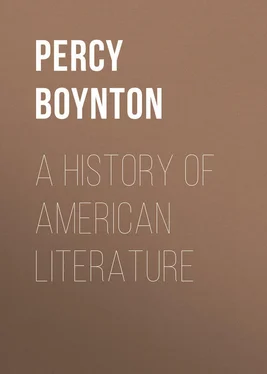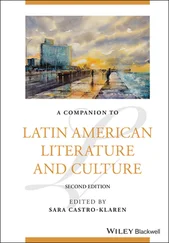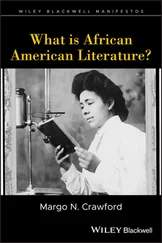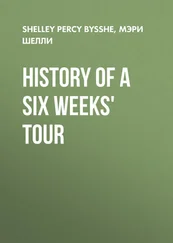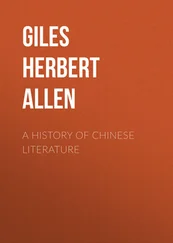Percy Boynton - A History of American Literature
Здесь есть возможность читать онлайн «Percy Boynton - A History of American Literature» — ознакомительный отрывок электронной книги совершенно бесплатно, а после прочтения отрывка купить полную версию. В некоторых случаях можно слушать аудио, скачать через торрент в формате fb2 и присутствует краткое содержание. Жанр: foreign_antique, foreign_prose, на английском языке. Описание произведения, (предисловие) а так же отзывы посетителей доступны на портале библиотеки ЛибКат.
- Название:A History of American Literature
- Автор:
- Жанр:
- Год:неизвестен
- ISBN:нет данных
- Рейтинг книги:4 / 5. Голосов: 1
-
Избранное:Добавить в избранное
- Отзывы:
-
Ваша оценка:
- 80
- 1
- 2
- 3
- 4
- 5
A History of American Literature: краткое содержание, описание и аннотация
Предлагаем к чтению аннотацию, описание, краткое содержание или предисловие (зависит от того, что написал сам автор книги «A History of American Literature»). Если вы не нашли необходимую информацию о книге — напишите в комментариях, мы постараемся отыскать её.
A History of American Literature — читать онлайн ознакомительный отрывок
Ниже представлен текст книги, разбитый по страницам. Система сохранения места последней прочитанной страницы, позволяет с удобством читать онлайн бесплатно книгу «A History of American Literature», без необходимости каждый раз заново искать на чём Вы остановились. Поставьте закладку, и сможете в любой момент перейти на страницу, на которой закончили чтение.
Интервал:
Закладка:
Though there may be something rather whimsical in all this, yet I confess I cannot look upon John’s situation without strong feelings of interest. With all his odd humors and obstinate prejudices, he is a sterling-hearted old blade. He may not be so wonderfully fine a fellow as he thinks himself, but he is at least twice as good as his neighbors represent him. His virtues are all his own; all plain, home-bred, and unaffected. His very faults smack of the raciness of his good qualities. His extravagance savors of his generosity; his quarrelsomeness of his courage; his credulity of his open faith; his vanity of his pride; and his bluntness of his sincerity. They are all the redundancies of a rich and liberal character.
In this spirit Irving wrote the other sketches of John Bull as he appears in “Rural Life,” “The Country Church,” “The Inn Kitchen,” and the group of five Christmas pictures.
To judge from these eight scenes of English country life, Irving, a visitor from a new and unsettled land, was chiefly fascinated by the evidences of old age and tradition on every side. For this reason, if for no other, he delighted in the customs of the country squires who had not been swept out of their ancient order by the tide of modern trade. Even the English scenery was in his mind “associated with ideas of order, of quiet, of sober, well-established principles, of hoary usage and reverend custom. Everything seems to be the growth of ages of regular and peaceful existence.” As Irving observed it, it was still theof song and story, an England, therefore, beautifully typified in the celebration of the Christmas festivities. There is a touch of autobiography in his comment on the good cheer that prevailed at Bracebridge Hall, – a home that Squire Bracebridge tried to make his children feel was the happiest place in the world, – it was so utterly different from the suppressed family circle over which his Presbyterian father had ruled. As a guest he enjoyed all the picturesque and quaint merrymaking at the Hall, and re-conjured up pictures like those which Addison had previously drawn at Sir Roger de Coverley’s. Yet all the while he was aware that the old English gentleman was a costly luxury for England to maintain, that Squire Bracebridge was after all nothing but John Bull, and that John Bull was inclining to lag behind his age. As a student of Goldsmith, Irving had read the thought of it seems to have come back to him while writing for a moment the usurpation of the land by the wealthy disquieted him, but then he consoled himself with the comforting thought that abuses of this sort were “but casual outbreaks in the general system.” Irving was writing as an observer who found much to admire in the external beauty of the old order of things, but at the bottom of his American mind it is quite apparent that there was a silent approval of gradual reform in “the good old ways.” Squire Bracebridge was delightful to Irving, but on the whole he was a delightful old fogy.
Irving’s papers on London – “The Boar’s Head Tavern,” “Westminster Abbey,” and “Little Britain” – are full of a similar reverence for old age in the life of the community. In the same mood in which he laughed at the pranks of the Christmas Lord of Misrule, he made his way to Eastcheap, “that ancient region of wit and wassail, where the very names of the streets relished of good cheer, as Pudding Lane bears testimony even at the present day”; and he took much more evident satisfaction in his recollection of Shakespearean revelries than in his hours in Westminster, the “mingled picture of glory and decay.” Once again in “Little Britain” Irving was in more congenial surroundings, for he preferred to smile at the echoes of dead laughter than to shudder at the reminders of vanished greatness.
Little Britain may truly be called the heart’s core of the city; the strong-hold of true John Bullism. It is a fragment of London as it was in its better days, with its antiquated folks and fashions. Here flourish in great preservation many of the holiday games and customs of yore. The inhabitants most religiously eat pancakes on Shrove Tuesday, hot-cross-buns on Good Friday, and roast goose at Michaelmas; they send love-letters on Valentine’s Day, burn the Pope on the fifth of November, and kiss all the girls under the mistletoe at Christmas. Roast beef and plum-pudding are also held in superstitious veneration, and port and sherry maintain their grounds as the only true English wines.
In more than casual respect for such traditions Irving goes on to introduce the rival oracles of Little Britain, to escort us to Wagstaff’s and the Roaring Lads, to act as personal conductor to Bartholomew Fairs and a Lord Mayor’s Day, and finally to lament the baleful influence of the socially ambitious Misses Lamb and the decline of the choice old games All-Fours, Pope Joan, and Tom-come-tickle-me. It is no wonder that the youthful Dickens loved these papers, for the same England appealed to both Irving and Dickens throughout their lives. It was a rough, boisterous, jolly England, with a good deal of vulgarity which they were ready to forgive and a good many vices which they chose to overlook in favor of its chief virtues – a blunt honesty, a hearty laugh, and a full stomach.
There is another side of old England that was dear to those two – that John Bull could “easily be moved to a sudden tear” (see p. 109, first topic). In the old days of even a hundred years ago men of Saxon stock were much more ready to express themselves than they are to-day, for the accepted manners of the present are comparatively reserved and impassive. If a man was amused he laughed loud and long; if he was angered he came up with “a word and a blow”; and if his deeper feelings were touched he was not ashamed of a tear. In fact he seemed almost to feel a certain pride in his “sensibility,” as if his power to weep proved that his nature was not destitute of finer feeling and made up for his quickness to wrath and his fondness for a broad joke. In perhaps unconscious recognition of this habit of mind the literature of a century ago contained a great many frank appeals to the reader’s feeling for pathos, appeals which the modern reader would be likely to condemn as unworthily sentimental.
In the history of literature a distinction is made between “sentiment” – the ability to respond to the finer emotions, such as love, sorrow, reverence, patriotism, worship – and “sentimentalism” – the unrestricted expression of these emotions by eloquence, tears, and feminine sighs, blushes, and swoonings. For this sentimentalism, which was a literary fashion of his period, Irving found an outlet in sketches like “The Wife,” “The Broken Heart,” “The Widow and her Son,” and “The Pride of the Village.” The first is on “the fortitude with which women sustain the most overwhelming reverses of fortune,” a sketch in which the husband is the sentimentalist. He has lost his money and is afraid to shock his wife with the revelation, but his “altered looks and stifled sighs” half betray him. In “an agony of tears” he tells a friend, and by him is persuaded to be honest with her. Her latent heroism comes out in the face of his announcement; and on her welcome to him at his first homecoming to the modest cottage he is rendered speechless, and tears once more gush into his eyes. The second is a direct attempt to shame “those who have outlived the susceptibility of early feeling, or have been brought up … to laugh at all love stories.” The third, on “The Widow and her Son,” is more convincing to the reader of to-day, for it is on the tragic picture of a fond parent’s bereavement. The fourth is the best example of all. The pride of the village is introduced as “blushing and smiling in all the beautiful confusion of girlish diffidence and delight.” She falls in love with a gallant young soldier, who begs her to accompany him when he is ordered to the front. Shocked at his perfidy she clasps her hands in agony, then succumbs to “faintings and hysterics,” and then goes into a decline. After some time her lover returns to her and rushes into the house. “She was too faint to rise – she attempted to extend her trembling hand – her lips moved as if she spoke, but no word was articulated – she looked down upon him with a smile of unutterable tenderness – and closed her eyes forever!” If these sketches seem unreal and even amusing to the student, it is partly because they are actually overdrawn and partly because the present generation has repressed, if it has not “outlived, the susceptibility of early feeling.”
Читать дальшеИнтервал:
Закладка:
Похожие книги на «A History of American Literature»
Представляем Вашему вниманию похожие книги на «A History of American Literature» списком для выбора. Мы отобрали схожую по названию и смыслу литературу в надежде предоставить читателям больше вариантов отыскать новые, интересные, ещё непрочитанные произведения.
Обсуждение, отзывы о книге «A History of American Literature» и просто собственные мнения читателей. Оставьте ваши комментарии, напишите, что Вы думаете о произведении, его смысле или главных героях. Укажите что конкретно понравилось, а что нет, и почему Вы так считаете.
